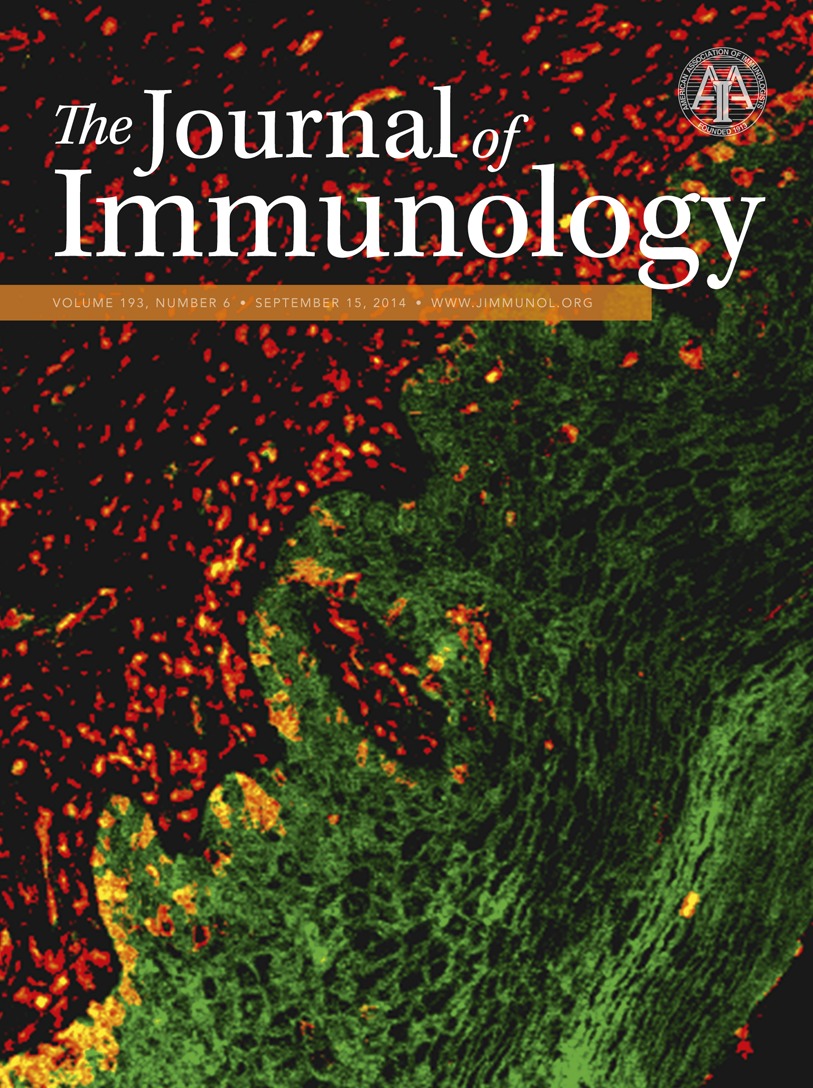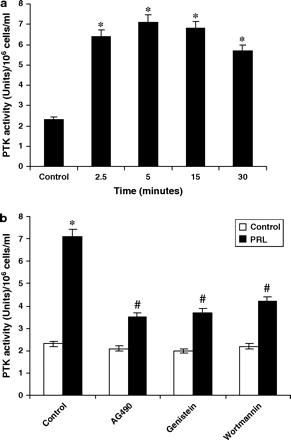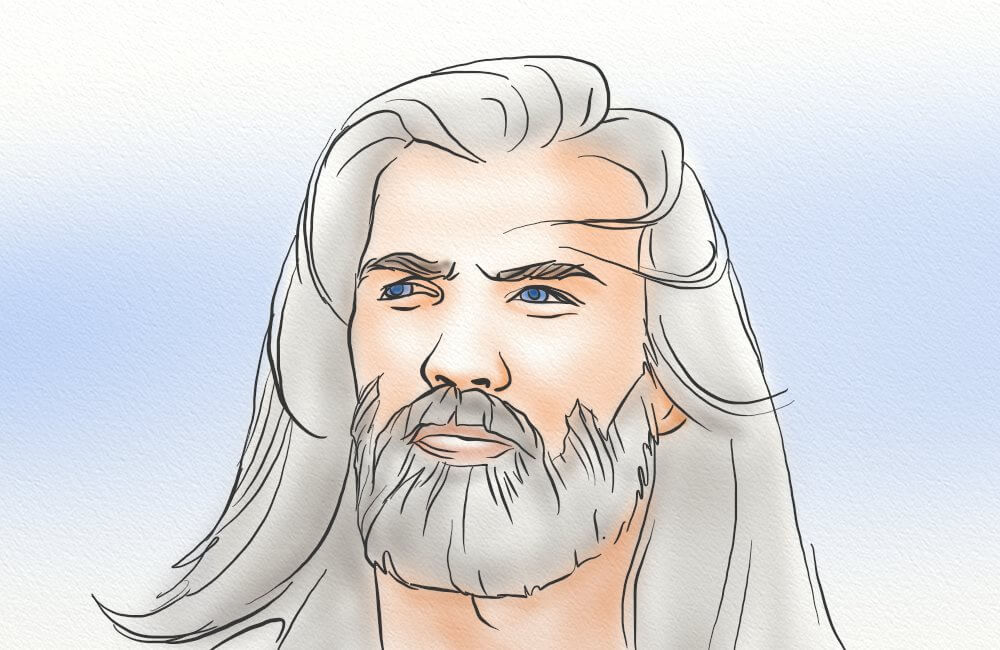It binds to both main estrogen receptors, alpha and beta same as 17b estradiol. The a and b in estradiol have nothing to do with the receptor it binds to.maybe i'm totally out of context and no talking about the right type of oestrogen but if ERa are bad why does product like pantostin conaining 17a oestradiol are recommended for hairloss? https://pubmed.ncbi.nlm.nih.gov/7398983/ thanks
You are using an out of date browser. It may not display this or other websites correctly.
You should upgrade or use an alternative browser.
You should upgrade or use an alternative browser.
Bayer Prolactin Receptor Antibody For Male And Female Pattern Hair Loss
- Thread starter Ollie
- Start date
This is why I have concerns about topical SMI, I worry that PRLR must be blocked systemically to prevent macrophages from outside invading the HF."In vivo inhibition of macrophage function was sufficient to induce HFSC proliferation and hair cycle induction. Together these results clarify how JAK-STAT signaling actively inhibits hair growth"

A Subset of TREM2+ Dermal Macrophages Secretes Oncostatin M to Maintain Hair Follicle Stem Cell Quiescence and Inhibit Hair Growth - PubMed
Hair growth can be induced from resting mouse hair follicles by topical application of JAK inhibitors, suggesting that JAK-STAT signaling is required for maintaining hair follicle stem cells (HFSCs) in a quiescent state. Here, we show that Oncostatin M (OSM), an IL-6 family cytokine, negatively...pubmed.ncbi.nlm.nih.gov
"PRL synergized with the TH1 cytokine IFN-gamma, a known activator of macrophages..."

Prolactin regulates antitumor immune response through induction of tumoricidal macrophages and release of IL-12 - PubMed
The involvement of PRL in regulating monocyte/macrophage functions is suggested by the presence of PRL-Rs in these cells. Here, we show that PRL, though it failed to activate mouse peritoneal resident macrophages (RMs), acted as a second signal and activated mouse peritoneal inflammatory...pubmed.ncbi.nlm.nih.gov

IFN-γ Primes Macrophage Activation by Increasing Phosphatase and Tensin Homolog via Downregulation of miR-3473b
The classical activation of macrophages, one of major innate effector cells, requires IFN-γ pretreatment (priming) and subsequent TLR stimuli (triggering). The priming effect of IFN-γ can promote macrophages to secrete higher level of proinflammatory cytokines but lower level of the...www.jimmunol.org
"macrophages have been reported to produce PRL and express high levels of prolactin receptor (PRLR)"

Prolactin-induced production of cytokines in macrophages in vitro involves JAK/STAT and JNK MAPK pathways
Abstract. Macrophages play a crucial role in host immunosurveillance against pathogens and malignancies. The enhanced productions of pro-inflammatory cytokinesacademic.oup.com
"PRL synergized with the TH1 cytokine IFN-gamma, a known activator of macrophages"

Prolactin regulates antitumor immune response through induction of tumoricidal macrophages and release of IL-12 - PubMed
The involvement of PRL in regulating monocyte/macrophage functions is suggested by the presence of PRL-Rs in these cells. Here, we show that PRL, though it failed to activate mouse peritoneal resident macrophages (RMs), acted as a second signal and activated mouse peritoneal inflammatory...pubmed.ncbi.nlm.nih.gov
I don't think it's a problem, just a small potential that it could be. If it was then adding cabergoline wouldn't help. Macrophages produce their own prolactin and have their own PRLRssh*t this is bad news. Hope you re wrong..
Maybe cabergoline + topical smi combo will do the trick ?
- Reaction score
- 342
"In vivo inhibition of macrophage function was sufficient to induce HFSC proliferation and hair cycle induction. Together these results clarify how JAK-STAT signaling actively inhibits hair growth"

A Subset of TREM2+ Dermal Macrophages Secretes Oncostatin M to Maintain Hair Follicle Stem Cell Quiescence and Inhibit Hair Growth - PubMed
Hair growth can be induced from resting mouse hair follicles by topical application of JAK inhibitors, suggesting that JAK-STAT signaling is required for maintaining hair follicle stem cells (HFSCs) in a quiescent state. Here, we show that Oncostatin M (OSM), an IL-6 family cytokine, negatively...pubmed.ncbi.nlm.nih.gov
"PRL synergized with the TH1 cytokine IFN-gamma, a known activator of macrophages..."

Prolactin regulates antitumor immune response through induction of tumoricidal macrophages and release of IL-12 - PubMed
The involvement of PRL in regulating monocyte/macrophage functions is suggested by the presence of PRL-Rs in these cells. Here, we show that PRL, though it failed to activate mouse peritoneal resident macrophages (RMs), acted as a second signal and activated mouse peritoneal inflammatory...pubmed.ncbi.nlm.nih.gov

IFN-γ Primes Macrophage Activation by Increasing Phosphatase and Tensin Homolog via Downregulation of miR-3473b
The classical activation of macrophages, one of major innate effector cells, requires IFN-γ pretreatment (priming) and subsequent TLR stimuli (triggering). The priming effect of IFN-γ can promote macrophages to secrete higher level of proinflammatory cytokines but lower level of the...www.jimmunol.org
"macrophages have been reported to produce PRL and express high levels of prolactin receptor (PRLR)"

Prolactin-induced production of cytokines in macrophages in vitro involves JAK/STAT and JNK MAPK pathways
Abstract. Macrophages play a crucial role in host immunosurveillance against pathogens and malignancies. The enhanced productions of pro-inflammatory cytokinesacademic.oup.com
"PRL synergized with the TH1 cytokine IFN-gamma, a known activator of macrophages"

Prolactin regulates antitumor immune response through induction of tumoricidal macrophages and release of IL-12 - PubMed
The involvement of PRL in regulating monocyte/macrophage functions is suggested by the presence of PRL-Rs in these cells. Here, we show that PRL, though it failed to activate mouse peritoneal resident macrophages (RMs), acted as a second signal and activated mouse peritoneal inflammatory...pubmed.ncbi.nlm.nih.gov
Our observations further suggest that PRL alone and in synergy with IFN-gamma, released through induction of IL-12, may generate tumoricidal macrophages and thus regulate the antitumor immune response of tumor hosts.
That's got me worried a bit. If PRL generates macrophages which are needed to fight tumors, are we putting ourselves at risk with no antitumor immune response? On the other hand, they say PRL, not PRLR, so IDK if it's that you just need PRL for this function, rather than PRL activation of the PRLR, in which case we'd be fine, since we're just blocking the receptor, rather than lowering PRL.
charlie76761
Established Member
- Reaction score
- 121
https://europepmc.org/article/pmc/1606541
Not sure if the above has been shared already, but seems to be further research showing lower PRL can be good for hair when elevated
Our data suggest that PRL acts as an autocrine hair growth modulator with catagen-promoting functions and that the hair growth-inhibitory effects of PRL demonstrated here may underlie the as yet ill-understood hair loss in patients with hyper-prolactinemia
Not sure if the above has been shared already, but seems to be further research showing lower PRL can be good for hair when elevated
Our data suggest that PRL acts as an autocrine hair growth modulator with catagen-promoting functions and that the hair growth-inhibitory effects of PRL demonstrated here may underlie the as yet ill-understood hair loss in patients with hyper-prolactinemia
End of February/March.I haven't been on this forum for a while now, in short when did Prolactin became a culprit for hair loss?
Oh nice so a couple of years will be needed for the actual knowledgeEnd of February/March.
- Reaction score
- 180
No, you're thinking too long. Few years is needed for treatment, hopefullyOh nice so a couple of years will be needed for the actual knowledge
Yeah, we can only hope.No, you're thinking too long. Few years is needed for treatment, hopefully
- Reaction score
- 107
Well doesn't SMI lower PRL? While HMI blocks PRLR?Our observations further suggest that PRL alone and in synergy with IFN-gamma, released through induction of IL-12, may generate tumoricidal macrophages and thus regulate the antitumor immune response of tumor hosts.
That's got me worried a bit. If PRL generates macrophages which are needed to fight tumors, are we putting ourselves at risk with no antitumor immune response? On the other hand, they say PRL, not PRLR, so IDK if it's that you just need PRL for this function, rather than PRL activation of the PRLR, in which case we'd be fine, since we're just blocking the receptor, rather than lowering PRL.
So SMI could possibly be tumorigenic?
SMI is a competitive inhibitor of PRLRs, HMI is an incompetitive one.Well doesn't SMI lower PRL? While HMI blocks PRLR?
So SMI could possibly be tumorigenic?
It means that HMI will be more potent than SMI as HMI can inhibit PRLRs even when prolactin is sticked on the receptor. SMI can't and has to be in competition with Prolactin to fix to the receptor.
- Reaction score
- 342
In 2006 they found this. Makes you wonder about all the treatments you found research on that then was never followed through on.https://europepmc.org/article/pmc/1606541
Not sure if the above has been shared already, but seems to be further research showing lower PRL can be good for hair when elevated
Our data suggest that PRL acts as an autocrine hair growth modulator with catagen-promoting functions and that the hair growth-inhibitory effects of PRL demonstrated here may underlie the as yet ill-understood hair loss in patients with hyper-prolactinemia
The bit about hair loss in hyper-prolactinemia is interesting. Does everyone with hyper-prolactinemia have hair loss? I imagine not otherwise the causal link would have been spotted long ago, but it makes you wonder why not.
Presumably all people have PRL in their HFs, why do some bald from it others not? Is it that you have to have PRL+excess DHT or PRL+androgen sensitivity? Obviously androgens are definitely involved, so it has to be that both PRL and the androgen angle are necessary for hairloss.
By why do some with hyper-PRL bald and others not? (if that is indeed so) Presumably rate of balding is higher among hyper-PRL, since they mention it, in other words it's not just that it's the people who would have balded anyway, even in absence of hyper-PRL.
Last edited:
Here you Can Read about the partnership of Hope Medicine and PAREXEL in developping HMI-115 with clinical trials planned in Europe:

I Hope they will Start the clinical study in Berlin as soon as possible
Contact me when they start in Berlin bro, i will also register
- Reaction score
- 107
Good to know, so the PRL will still be there and functional in the body to generate macrophages etc.SMI is a competitive inhibitor of PRLRs, HMI is an incompetitive one.
It means that HMI will be more potent than SMI as HMI can inhibit PRLRs even when prolactin is sticked on the receptor. SMI can't and has to be in competition with Prolactin to fix to the receptor.
- Reaction score
- 342
Sorry if this has been covered, but why were the Discord guys unable to procure HMI? I seem to remember hearing something about it being difficult to manufacture. Or is it because of the patent?
- Reaction score
- 615
Outrageously expensive, custom monoclonal antibody manufacture in reasonably large scale was quoted in the millionsSorry if this has been covered, but why were the Discord guys unable to procure HMI? I seem to remember hearing something about it being difficult to manufacture. Or is it because of the patent?
- Reaction score
- 985
There is a brandnew newspaper (September 2021!) with Henri Nico Doods (CEO of Hope Medicine) on the cover:
《进出口经理人》2021年第9期 卷首语 (tradetree.cn)

Is anybody able to read the article?
《进出口经理人》2021年第9期 卷首语 (tradetree.cn)
Is anybody able to read the article?
It says cure in 5 years : Finoxidil is coming.There is a brandnew newspaper (September 2021!) with Henri Nico Doods (CEO of Hope Medicine) on the cover:
《进出口经理人》2021年第9期 卷首语 (tradetree.cn)
View attachment 169630
Is anybody able to read the article?
Jokes apart, should we be hyped?
- Reaction score
- 122
This topic was covered a while back briefly as a piece of hope surrounding new entrants to the market however thought i would highlight some findings from the patent itself that gave me some fresh hope.
The drug in question is Bayer's PRL receptor anti-body drug that specifically targets the PRL receptor.
"PRLR-mediated signaling plays a role in a variety of processes such as mammary gland development, lactation, reproduction, mammary and prostate tumor growth, autoimmune diseases, general growth and metabolism, and immunomodulation"
It was speculated in the last post on this topic that the drug wouldn't be effective because these traits were assumed to be linked to prolactin itself. Dopamine agonists such as Cabergoline that suppress prolactin have no beneficial effect for Androgenetic Alopecia hinting this would be equally ineffective.
However, it appears the actual supression of serum prolactin itself is not a metric for effectiveness ...
"The pituitary PRL secretion can be inhibited by use of bromocriptine and other dopamine receptor 2 agonists. These agents, however, do not suppress extrapituitary PRL synthesis that can compensate successfully for the inhibition of pituitary PRL synthesis leading to almost unimpaired PRLR-mediated signalling"
As for results when trialed on stumptail macaques it was found that over a 6 month period results of hair growth did not peak during the 6 month time period. A drastic increase of the terminal hair count in bald areas (109 % increase) was demonstrated as well as an increase in transition areas.
Not exactly new news however in light of RCH-01 being a let down this might be of some comfort for the future.
Patent : https://patents.google.com/patent/WO2019011719A1/en

RU58841 - Research and Study Results for Hair Growth | Hairguard
In this article you’re going to learn about RU58841. You’ll learn what it is, how effective it is at reversing hair loss, how to use it, how to make it, and associated side effects. You’ll see (from scientific studies) just how effectively this chemical can re-grow your hair. If you have tried...
macaques responded to RU with 104% increase and to finasteride with 88% increase, both far superior to how humans respond to those drugs. if they monkeys had regrowth, that is nice and well and humans might get some but i advice people to tame their expectations and macaques tend to be better responders..

